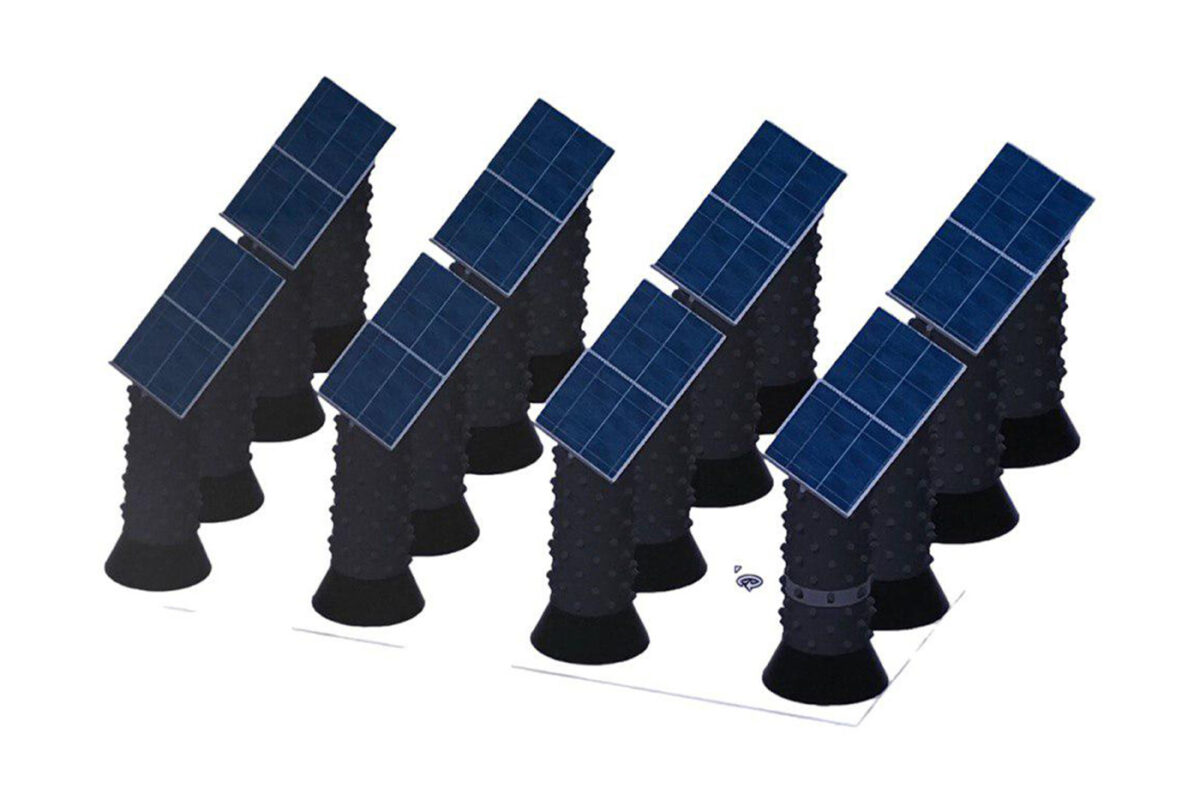From pv magazine Spain
The Electrical Machines and Drives Research Group (EM&D) at the National University of Colombia (UNAL) has developed a prototype system that integrates solar panels with hydroponic cultivation towers, allowing vegetables to grow using rainwater.
“In this way, each square meter can be used to produce food and generate energy at the same time,” the researchers said, noting that the system is still in the prototype phase. “The idea is to create a structure where vegetables such as lettuce, chard and spinach grow in water instead of soil.”
The tower has a modular design with 20 cm rings stacked to form structures up to 2.5 meters high, optimizing space to grow 80 plants per square meter, compared to 10 in traditional methods.
Its vertical layout reduces strain on farmers by easing access to plants and minimizing bending, which is common in conventional farming.
The system, which is designed to collect rainwater, maximizes resource use for agricultural production. While primarily intended for vegetables, it can adapt to other crops or applications.
“For example, in Ubaté, a dairy municipality par excellence, solar panels could be installed on the places where the cattle are and thus energy and milk would be produced at the same time,” explained the researchers.
UNAL researchers are tackling the challenge of solar panel shadows reducing crop productivity by testing semi-transparent panels that allow more light to reach plants, reducing the potential negative impact.
The next development phase will involve testing the system’s resistance and durability to ensure the towers and solar panels can withstand Cundinamarca’s heavy rains and strong winds.
Author: Pilar Sánchez Molina
This content is protected by copyright and may not be reused. If you want to cooperate with us and would like to reuse some of our content, please contact: editors@pv-magazine.com.








By submitting this form you agree to pv magazine using your data for the purposes of publishing your comment.
Your personal data will only be disclosed or otherwise transmitted to third parties for the purposes of spam filtering or if this is necessary for technical maintenance of the website. Any other transfer to third parties will not take place unless this is justified on the basis of applicable data protection regulations or if pv magazine is legally obliged to do so.
You may revoke this consent at any time with effect for the future, in which case your personal data will be deleted immediately. Otherwise, your data will be deleted if pv magazine has processed your request or the purpose of data storage is fulfilled.
Further information on data privacy can be found in our Data Protection Policy.